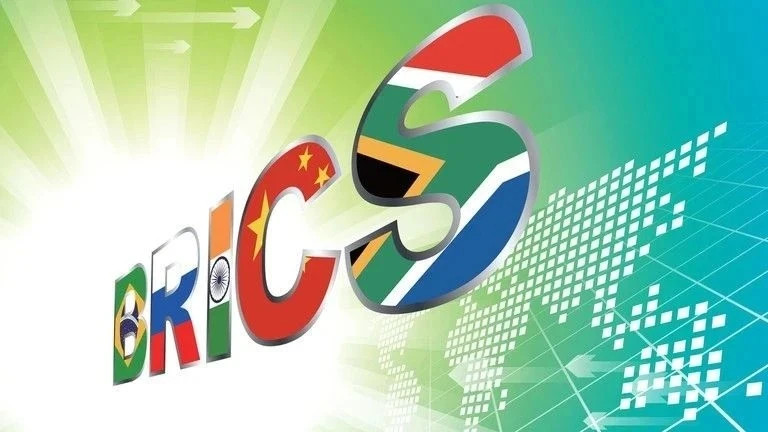This decision not only marks a new chapter in BRICS' development but also underscores the efforts to assert the position of developing countries.
BRICS started 2025 by making a significant stride with the joining of Indonesia — the fourth most populous country in the world and a leading economy in Southeast Asia — and new partners from across the continents of Asia, Europe, the Americas, and Africa. This expansion is likened to extending arms that help BRICS reach its influence across most regions of the globe.
With a GDP of approximately 1.4 trillion USD, a population exceeding 280 million, and an annual economic growth rate of over 5% for the past decade, Indonesia is viewed as a dynamic emerging market with substantial development potential.
Moreover, Indonesia and BRICS share a common perspective on the reformation of global governance systems and enhancing cooperation in the Global South.
Therefore, Indonesia's membership is expected to strengthen BRICS' position in establishing a new multipolar international order.
For Indonesia, becoming an official member of BRICS marks a significant advancement in the country’s international integration strategy.
The Indonesian Ministry of Foreign Affairs emphasised that this milestone reflects Indonesia's active role in promoting multilateral cooperation and addressing global issues while amplifying the voices of Southern Hemisphere countries in global governance systems.
The cooperative agenda within BRICS aligns with Indonesia's priorities, particularly regarding food security, energy, poverty reduction, and human resource development.
Arsjad Rasjid, Chairman of the Indonesian Chamber of Commerce and Industry, views this as a historic moment which opens opportunities for Indonesia to penetrate various emerging markets within BRICS.
Not only does Indonesia benefit from this membership, but the new partner countries also stand to gain significantly by strengthening their ties with BRICS.
For Cuba, BRICS presents a crucial opportunity to break through decades-long economic blockades. Cuban President Miguel Diaz-Canel affirmed that BRICS ignites great hope for countries in the Global South in their struggle for a fairer international order.
Meanwhile, Bolivia sees BRICS as an opportunity to expand its market and stimulate economic growth. Bolivian President Luis Arce highlighted that access to massive markets such as China and India offers unprecedented opportunities for Bolivia to develop critical sectors including energy, trade, high technology, industry, and sustainable finance.
Recently, BRICS has been increasingly attractive as it continues to assert its role as a vital growth engine for the global economy.
Before Indonesia's accession, BRICS accounted for nearly half of the world's population and over 41% of global GDP. Many BRICS members are leading producers of essential commodities such as crude oil, natural gas, grains, and meat, as well as critical minerals like iron ore, copper, and nickel.
The official inclusion of three oil powerhouses — Saudi Arabia, the United Arab Emirates (UAE), and Iran — at the beginning of 2024 has enabled BRICS to unite countries that account for 80% of global oil production and become one of the leading blocs in global energy.
Additionally, thanks to its diversity with members and partners from various regions worldwide, BRICS represents a significant voice for developing and emerging nations globally.
However, many experts argue that alongside these benefits, continuous expansion poses challenges for BRICS — especially when some member countries do not develop uniformly economically.
With its increasingly robust expansion efforts, BRICS is entering a new phase of development that promises profound changes to the global economy and governance systems. In this context, cooperation within BRICS simultaneously opens opportunities for developing countries to assert their positions in the international arena.
















